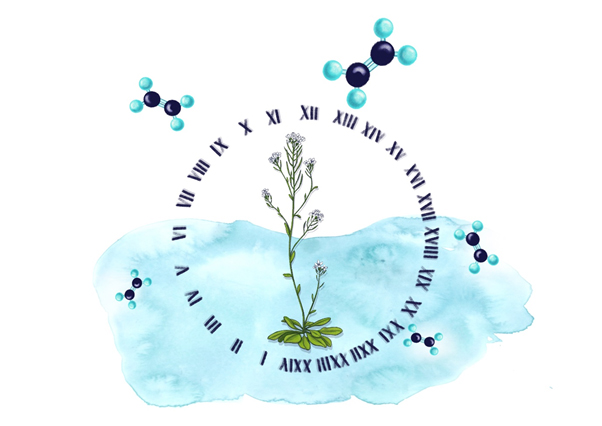Dissecting interaction between the circadian clock and flooding stress
Induced by climate change, weather extremes are an ever-growing problem for biodiversity as well as food security worldwide. With dire predictions for an increasing number of flooding events, basic plant research has to find effective responses to grow more resistant crops and feed the growing global population. Plant response to flooding relies on the accumulation of ethylene, the only known gaseous hormone. Simultaneously, ethylene is regulated through the circadian clock. Circadian clock is a widespread biological timekeeping molecular mechanism, that allows plants to track and predict daily environmental changes caused by the earth´s rotation. The ethylene hormone levels oscillate during the day and peak at noon. However, the role of ethylene oscillations has not been well described. Moreover, with this project, I would like to dissect the pattern of circadian ethylene emissions under flooding stress applied at different times of the day. This project will be the basis for the future engineering of more resilient plants, able to survive recurring stresses.







